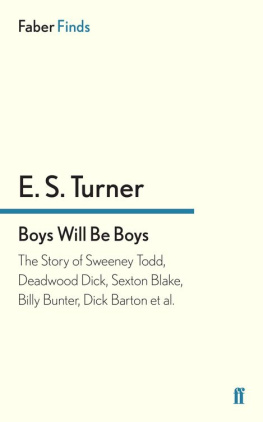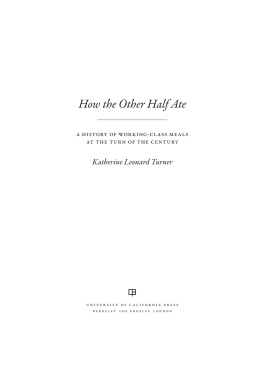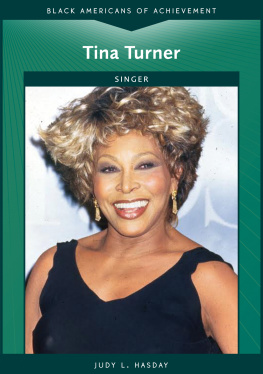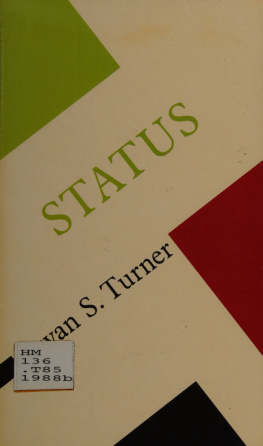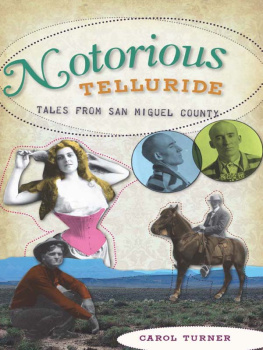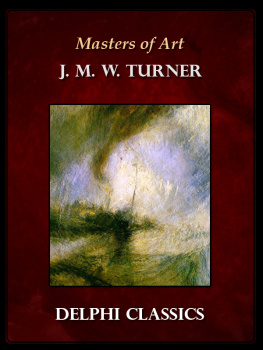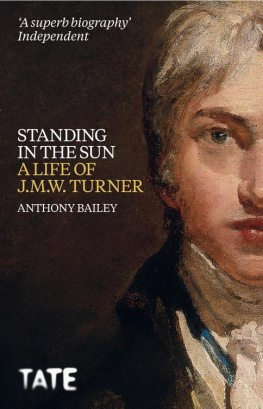Turner - The Literary Mind
Here you can read online Turner - The Literary Mind full text of the book (entire story) in english for free. Download pdf and epub, get meaning, cover and reviews about this ebook. City: New York;Oxford, year: 1999, publisher: Oxford University Press, genre: Romance novel. Description of the work, (preface) as well as reviews are available. Best literature library LitArk.com created for fans of good reading and offers a wide selection of genres:
Romance novel
Science fiction
Adventure
Detective
Science
History
Home and family
Prose
Art
Politics
Computer
Non-fiction
Religion
Business
Children
Humor
Choose a favorite category and find really read worthwhile books. Enjoy immersion in the world of imagination, feel the emotions of the characters or learn something new for yourself, make an fascinating discovery.
- Book:The Literary Mind
- Author:
- Publisher:Oxford University Press
- Genre:
- Year:1999
- City:New York;Oxford
- Rating:4 / 5
- Favourites:Add to favourites
- Your mark:
- 80
- 1
- 2
- 3
- 4
- 5
The Literary Mind: summary, description and annotation
We offer to read an annotation, description, summary or preface (depends on what the author of the book "The Literary Mind" wrote himself). If you haven't found the necessary information about the book — write in the comments, we will try to find it.
The Literary Mind — read online for free the complete book (whole text) full work
Below is the text of the book, divided by pages. System saving the place of the last page read, allows you to conveniently read the book "The Literary Mind" online for free, without having to search again every time where you left off. Put a bookmark, and you can go to the page where you finished reading at any time.
Font size:
Interval:
Bookmark:
3;: THE
S .L.\
cf? - ~\
AEK TURNER
THE
@@@@3@@@
LITERARY
@@@@3@@@3
IWINI)
This page intentionally left blank
THE
@@@@@@@
LITERARY
@@@@@@
TWINE)
MARK TURN ER
NEW YORK OXFORD OXFORD UNIVERSITY PRESS 1996
Oxford University Press
Oxford NewYork Athens Auckland Bangkok Bogota Bombay Buenos Aires Calcutta Cape Town Dar es Salaam Delhi Florence HongKong Istanbul Karachi Kuala Lumpur Madras Madrid Melbourne Mexico City Nairobi Paris Singapore Taipei Tokyo Toronto
and associated companies in Berlin Ibadan
Copyright 1996 by Mark Turner
Published by Oxford University Press, Inc. 198 Madison Avenue, New York, New York 10016
Oxford is a registered trademark of Oxford University Press, Inc.
All rights reserved. No part of this publication may be reproduced, stored in a retrieval system, or transmitted, in any form or by any means, electronic, mechanical, photocopying, recording or otherwise, without the prior permission of Oxford University Press.
Library ofCongress CataloginginPublication Data Turner, Mark. The literary mind / Mark Turner. p. cm. Includes bibliographical references and index. ISBN 0195104110 (cloth) 1. LiteraturePhilosophy. 2. Cognitive science. I. Title. PN49.T77 1996 801'.92-dc20 95-50366
135798642
Printed in the United States ofAmerica on acidfree paper
.33 PREFACE 6;.
IF YOU ARE B ROWSING this paragraph in a bookstore, glance at the people around you. They are thinking, searching, planning, deciding, watching the clock, walking to the register, buying books, talking to friends, and wondering why you are looking at them. None of this seems literary.
But to do these things, they (and you) are using principles of mind we mis- takenly classify as literarystory, projection, and porole. We notice these prin- ciples so rarely in operation, when a literary style puts them on display, that we think of them as special and separate from everyday life. On the contrary, they make everyday life possible. The literary mind is not a separate kind of mind. It is our mind. The literary mind is the fundamental mind. Although cognitive science is associated with mechanical technologies like robots and computer in- struments that seem unliterary, the central issues for cognitive science are in fact the issues of the literary mind.
Story is a basic principle of mind. Most of our experience, our knowledge, and our thinking is organized as stories. The mental scope of story is magnified by projectz'onone story helps us make sense of another. The projection of one story onto another is poroole, a basic cognitive principle that shows up every- where, from simple actions like telling time to complex literary creations like Prousts 1? la recherche du tempsperdu.
We interpret every level of our experience by means of parable. In this book, I investigate the mechanisms of parable. I explore technical details of the brain sciences and the mind sciences that cast light on our use of parable as we think, invent, plan, decide, reason, imagine, and persuade. I analyze the activity of par- able, inquire into its origin, speculate about its biological and developmental bases, and demonstrate its range. In the final chapter, I explore the possibility that lan- guage is not the source of parable but instead its complex product.
Parable is the root of the human mindof thinking, knowing, acting, cre- ating, and plausibly even of speaking. But the common view, firmly in place for
V1.6 PREFACE
two and a half millennia, sees the everyday mind as unliterary and the literary mind as optional. This book is an attempt to show how wrong the common view is and to replace it with a view of the mind that is more scientific, more accurate, more inclusive, and more interesting, a view that no longer misrepresents every- day thought and action as divorced from the literary mind.
College Park, Ma. M. T. Nowemer 1995
.33 ACKNOWLEDGMENTS 6;.
THE JOHN S1MON GUGGENHEIM MEMORIAL FOUNDATION and the University of Maryland supported the writing of this book during 1992- 1993, while Iwas a visiting scholar of the Department of Cognitive Science, the Department of Linguistics, and the Center for Research in Language at the Uni- versity of California, San Diego. Their support made it possible for me to pre- pare for publication re search I had presented in public lectures during earlier years. The book was completed during my year as a fellow of the Center for Advanced Study in the Behavioral Sciences, in 1994-1995. I am grateful for financial sup- port provided during that period by the Andrew W. Mellon Foundation.
Scholars at the University of California, San Diego, to whom I am indebted include Seana Coulson, Jeff Lansing, Gilles Fauconnier, Adele Goldberg, Rob- ert Kluender, Ronald Langacker, Jean Mandler, and Nili Mandelblit. I am also indebted to Claudia Brugman,Jane Espenson, Charles Fillmore, MarkJohnson, Paul Kay, George Lakoff, Eve Sweetser, and Leonard Talmy.
Gilles Fauconnier and I discovered independently a range of problems in conceptual projection that convinced us of the need for a new approach. Our collaboration resulted in the theory of conceptual blending. We presented its elements at the October 1993 Cognitive Linguistics Workshop and later in a technical report and articles. I thank Gilles Fauconnier for permission to include in chapters 5 and 6 some of our results. Anyone who knows the extreme velocity of Fauconniers intellect will understand why credit for insights achieved during our collaboration cannot be partitioned (especially since many other people have been involved in the discussions), but also why I owe a net intellectual debt. I take responsibility for the version of the theoryI present here.
I am grateful to Antonio Damasio, Hanna Damasio, and Gerald Edelman for conversations on the relationship of the study of language to the study of the brain. I also thank Hallgjerd Aksnes, David Collier, Raymond W. Gibbs, Jr.,
Vlll .6 ACKNOWLEDGMENTS
Edward Haertel, Mardi Horowitz, Suzanne Kemmer, Robert Keohane, Tanya Luhrmann, and FrancisNo'el Thomas for comments. Kathleen Much, staff editor at the Center for Advanced Study in the Behavioral Sciences, made help- ful suggestions on some of the chapters. It has been my good fortune to have Cynthia Read as my editor at Oxford University Press.
p_n
0O\10\UJ>-l>DJN?
.3) CONTENTS 9;.
Bedtime with Shahrazad Human Meaning
Body Action
Figured Tales
Creative Blends
Many Spaces
Single Lives
Language
Notes
Further Reading on Image Schemas Index
This page intentionally left blank
THE
@@@@'3@3@@3
LITERARY
@@@@@@@3
IWINI)
This page intentionally left blank
.59 1 Ca. BEDTIME WITH SHAHRAZAD
T HERE WAS ON CE a wealthy farmer who owned many herds of cattle. He knew the languages of beasts and birds. In one of his stalls he kept an ox and a donkey. At the end of each day, the ox came to the place where the donkey was tied and found it well swept and watered; the manger filled with sifted straw and well-winnowed bar- ley; and the donkey lying at his ease, for the master seldom rode him.
It chanced that one day the farmer heard the ox say to the donkey: How fortunate you are! I am worn out with toil, while you rest here in comfort. You eat wellsifted barley and lack nothing. It is only occa- sionally that your master rides you. As for me, my life is perpetual drudg- ery at the plough and the millstone.
The donkey answered: When you go out into the field and the yoke is placed upon your neck, pretend to be ill and drop down on your belly. Do not rise even if they beat you; or if you do rise, lie down again. When they take you back and place the fodder before you, do not eat it. Ab- stain for a day or two; and thus shall you find a rest from toil.
Next pageFont size:
Interval:
Bookmark:
Similar books «The Literary Mind»
Look at similar books to The Literary Mind. We have selected literature similar in name and meaning in the hope of providing readers with more options to find new, interesting, not yet read works.
Discussion, reviews of the book The Literary Mind and just readers' own opinions. Leave your comments, write what you think about the work, its meaning or the main characters. Specify what exactly you liked and what you didn't like, and why you think so.






